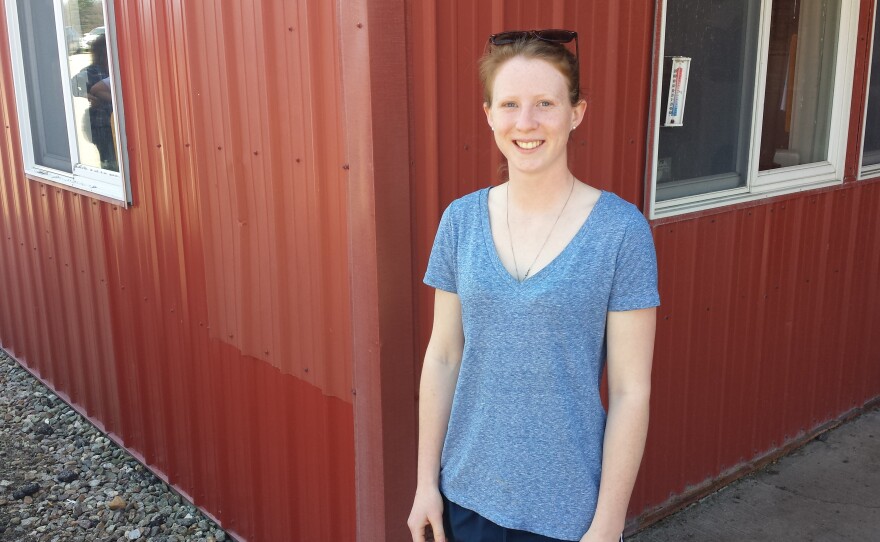There's a cliché around college life, that students are up at all hours of the night, and not merely for studying. Of course, when junior Tyler Kelting is up at 4 in the morning, it’s not because of partying. He’s got work to do.
"We milk at 4 am and 3 pm," he says during an open house at the Fairchild Dairy Teaching and Research Center, on the northwestern side of the Durham campus. And about 70 of the roughly 170 cows here need milking, so there's plenty to do.
Kelting is one of 25 students in a course called CREAM - that’s Cooperative Real Education in Agricultural Management. The Fairchild Center is home to a working herd of about 200 cows, which produces and sells some 241,000 gallons of milk each year. Since its founding in 1997, CREAM has been giving agriculture and pre-veterinary students the chance to work with the herd hands-on – or, in Kelting’s case, hands in: he once had to reach into a cow’s stomach to check on its digestion.
“It’s weird," he says of reaching into a cannula, a sort of "window" cut into some cows' digestive tracts for research projects. "Occasionally the stomach contracts, to push food through. I had my hand in there and the stomach was contracting on my hand. Apparently it’s normal, and I still have my arm, so that’s good.”

This sometimes literally immersive approach is overseen by UNH professor Drew Conroy. He says dairy farming is work you learn by doing, so after he teaches them the basics, he lets the students steer the course. This year’s class focused in part on public education:
“We had a number of students interested in outreach," he says, "and some of them possibly being agriculture educators in their careers, and they wanted to do something to reach out to the public.” Their most recent project was the public open house the first weekend in May.
CREAM students even partially grade each other on the course activities they design, to make sure each student does his or her part - although junior Kirby Beranger of Alton says anyone in a classroom can tell whether a student has done morning chores. “You can tell," she says, laughing. "I smell like the cows, I smell like the barn. You can tell I was working and you can tell all the people who are in the class because they come in, they’re tired, hair’s a mess, no makeup, they don’t care. They’re like, oh I just came from shift.”
"There is going to be demand for this product. We're not going to give up drinking milk and ice cream and eating cheese anytime soon."
You might not expect such enthusiasm for dairy farming these days. A recent drop in dairy prices means farms are either breaking even on milk sales or making less in sales than they spend to produce their milk. But there’s actually a waiting list to get into this course. Conroy, the professor, says the number of New Hampshire dairy farms may have declined, there will still be dairy work here in the years to come.
“There is a great future in this industry, because there is going to be demand for this product," he says.

"We’re not going to give up drinking milk and ice cream and eating cheese anytime soon. The challenge has been for the farmers to adapt and grow in a way that they're able to support their families and their farms.”
The CREAM course doesn’t aim to solve these issues, but Conroy says students will be well prepared for big questions about dairy farming – and small questions too. CREAM students get to name the calves as they’re born. And over the years, CREAM students have started a tradition for naming the newborns:
“They often pick a theme, and a certain cow family will follow a theme,” Conroy explains. “One year it was sodas, and for the next ten years we had Fantas and Pepsi and all sorts of soda names.”
And for this year’s cows?
“These students, at this age, Game of Thrones is a very exciting television program…”
So if you open a bottle of milk in New Hampshire, there’s a chance of some of what’s inside came from a cow at the University of New Hampshire named Cersei or Deanerys.
https://www.youtube.com/watch?v=Wro0VE6i-XM




















